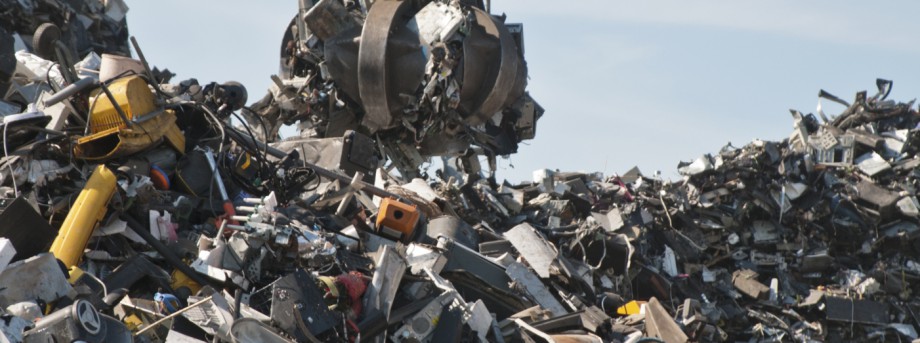The University of Nottingham
 Exchange online
Exchange online
Research Exchange
Turning waste into wealth

Waste is a valuable resource that could earn the UK tens of billions of pounds, according to a new report by the House of Lords Science and Technology Committee.
The report, ‘Waste or resource? Stimulating a bioeconomy’, calls on the government to change the way we view waste — and see it as an opportunity rather than a problem.
A University of Nottingham academic was among the experts whose research was used to underpin the House of Lords report.
Greg Tucker, a professor of plant biochemistry, is an expert in methods used to break down organic material — like food waste and agricultural waste — to produce biofuels such as ethanol.
Professor Tucker’s research on the conversion of wheat straw into ethanol features in the House of Lords report, which will be considered at the highest levels of the UK government.
Professor Tucker said: “Currently most bioethanol is derived from maize or sugar cane, but the use of waste sources such as wheat straw is much preferred as this would not compete with food production. Several groups at Nottingham have contributed their skills to the BBSRC Sustainable Bioenergy Centre (BSBEC) with a view to achieving this aim.”
Research priorities
Energy and sustainability are priority areas of research for The University of Nottingham, with world-leading teams working in a range of fields including biofuels, bio-renewables, green chemistry, synthetic biology, low-energy buildings, carbon capture, global food security, energy storage and many others.
A £14.3m grant announced in January is being used to develop a Synthetic Biology Research Centre, which will provide new sustainable routes to important chemicals.
The funding, from the Biotechnology and Biological Sciences Research Council (BBSRC) and the Engineering and Physical Sciences Research Council (EPSRC), will support the research of Professor Nigel Minton and his team in the use of synthetic biology to engineer microorganisms that can be used to manufacture greener fuels.
Professor Minton’s research has also informed the work of the Lords Science and Technology Committee. He gave a presentation to the Committee in October 2013.
Developing a bioeconomy
The House of Lords report calls on the government to create a Waste Champion, to take on the job of developing a ‘brass from muck’ bioeconomy — one that could see major economic benefits as well as a considerable number of green jobs.
Although there are many kinds of waste generated from a variety of sources, the Lords inquiry looked specifically at waste which contains carbon, such as food waste and waste gas from factories and power stations.
Around 100 million tonnes of carbon-containing waste is available every year, and could potentially be exploited as a resource.
Using the latest technology, this type of waste can be converted into valuable products such as fuels, flavours and fragrances, plastics, paint or pharmaceuticals. The potential size of this bioeconomy, according to the Department for Business, Innovation and Skills, is estimated to be in the tens of billions of pounds.
For example, technology has the potential to produce, from waste, nearly 40 per cent of the petrol used in the UK. The Department for Transport estimates that this would be worth about £2.4bn.
A valuable resource
Lord Krebs, Chair of the House of Lords Science and Technology Committee, said: “Our investigation has revealed that the UK, which generates hundreds of millions of tonnes of waste every year, has the scientific know-how and the industrial will to turn this waste into wealth.
“But we are concerned that the Government is not seizing this opportunity — there is a huge amount at stake here, economically and environmentally, and no single department appears to be leading the way.
“We are calling on the Government to create a Waste Champion, a Minister who can co-ordinate action and policy across different departments so this chance is not missed. The Waste Champion should not only ensure that the UK has the ideal environment for a waste bioeconomy to flourish, but also come up with a long-term vision to maintain it.
“Our report clearly shows that where there’s muck, there’s brass. Waste, traditionally seen as a problem, needs to be viewed as a hugely valuable resource, one which could generate a substantial economy of its own. We must not let this opportunity pass us by.”
The Science and Technology Committee has a broad remit to consider science and technology; it scrutinises Government policy by undertaking cross-departmental inquiries into a range of different activities.
Leave a Reply
Other

Top prize for quantum physicist
A University of Nottingham physicist has won a prestigious medal from the Institute of Physics for […]

Zero carbon HOUSE designed and built by students comes home
Design and construct a low cost, zero carbon, family starter home, transport it to Spain, build […]